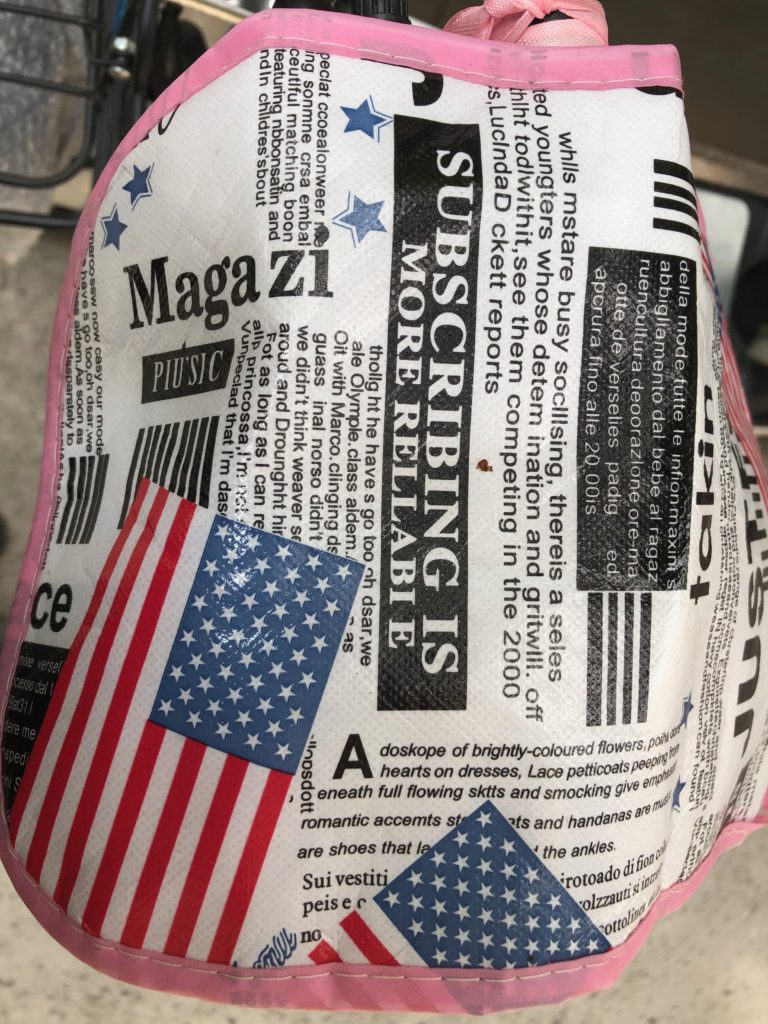It’s really something, isn’t it, to reckon with generational narratives, such as that of the Greatest Generation and the US role in WWII, in light of MAGA on one hand and, on the other, the end-Holocene transition into the [ ]?
My father recently shared via group email a truly touching Memorial Day Salon column by US military family man Lucian K. Truscott IV, in which Truscott compares Eisenhower and Cronkite’s 1964 commemoration of D‑Day to Trump and Laura Ingraham’s in 2019 (Trump didn’t commemorate, of course, slipping quickly from history-as-word-salad into Dem-bashing).
A couple of my father’s retiree email correspondents — men born in the 1940s — took predictable-enough Reply-all shots at Trump and praised the old generals (Truscott IV also writes about how his grandfather, who led US forces in Italy, commemorated the dead at Anzio).
In my response (pasted below), I had, upon reflection, future generations in mind — my ten-year-old daughter’s, to start with — and my own retirement-age years. And when it comes to soldier-writers and wars, I find I have more in common with Iraq War vet Roy Scranton than Truscott. Scranton’s latest “we’re doomed, now what” piece argues that the children of the “Greatest Generation,” roughly, cast climate change in a narrative that resonates, I think, with my father’s correspondents’ take on Truscott’s take on Ike’s take on defeating the Nazis. Scranton, reviewing Bill McKibbon’s Falter, writes:
The story McKibben knows best is one in which our mission in the wilderness has foundered but can be saved by spiritual renewal. When he turns to face the future, he does so dressed in a faded patchwork of Protestant confessionalism, Disneyfied Romanticism, and faith in human redemption.
Scranton also reviews David-Wallace Wells’ The Uninhabitable Earth, noting that Wells “is of another generation; he was seven when Bill McKibben pronounced the ‘end of nature,’ and belongs to one of the first cohorts that grew up knowing it lived in a world transformed by global warming.” Scranton approves of Wells’ willingness to “paint a compelling, comprehensive, solidly researched, and genuinely terrifying picture of our future” and to “to the limits and obstacles we face in addressing the problem,” but calls him to task for, in the end, imagining that “climate change is our choice, for we have all the tools we need to stop it” without accounting for “much about how politics and governance work.” Scranton gonna Scranton, as my friend and colleague Dan put it after sharing Sergeant Doom’s LARB review of Falter with me via WeChat.
I think Scranton is right that we need to — yet also cannot bear to, or perhaps just cannot — abandon such narratives of choice and progress and of being on the “right side of history,” the kinds of story in which, presumably, Trump (and Bolsonaro, and the European Right, and Putin, etc.) are just bad choices that “we” can undo or conquer, that they’re aberrations who, like the worst villains of the 20th century, can be overcome with heroic effort. The rhetoric is baked into liberal-left narratives about climate change. Even further to the American left, AOC and her Green New Deal supporters reach for narratives of how “we” overcame the Great Depression and of how “we” went all-out to win World War II, and how “we” can mobilize now, too, to win the war against climate change.
Though I, too, want to believe and sing America, I don’t, and I can’t, at least not in the same major key. It’s not a war. It’s not a moral evil that can be overcome with a movement. It’s not an economic rough patch that can be passed through by humanizing capitalism with a bit of social democracy. It’s a passage from one geological time period to another. It will swallow what we think of as human civilization (including our variously encoded conceptions of moral evil), nearly all of which has arisen in the 11,700-year stretch of nice weather we call the Holocene. And though it’s not a war, it is an emergent temporospatial terrain for war-making, and we’ll far more likely see the wars of this instant radiating outwards from the “oil heartlands” of the Middle East to engulf the planet, one failing state after another, before we see ourselves come together as a species to save the planet in anything like a recognizable “as we know it” form.
Anyway, post-Memorial Day and pre-Father’s Day, here’s this son’s response to his father’s shared Salon column by a military-family’s son recalling his paternal line’s (both literally and figuratively, as a member of the military’s “band of brothers”) attempt to save the narrative of the Greatest Generation’s sacrifice made, in Ike’s words to Cronkite, “not “to gain anything for ourselves, not to fulfill any ambitions that America had for conquest, but just to preserve freedom.”
Sorry, Dad, and sorrier, daughter, though “sorry” hardly makes sense any more (thinking and feeling the Anthropocene (or Capitalocene, or Trumpocene, or Whatevocene) can have that effect). And that’s not nihilism or defeatism, Scranton argues. It’s coming to terms with emergent reality, and a necessary precursor to figuring out how to live in the future, not in the past. I think Scranton’s right in his counter to the “ecological nihilism” charge that comes up in such moments, as he is with Wells who, Scranton argues, ultimately arrives at the sentiment “that anyone who takes seriously the possibility that climate change has slipped out of our control isn’t worth seriously considering.”
The email response:
Thanks for this. Sobering and thought-provoking, for sure. I can see why you liked (and still like) Ike. I’m tempted to see the breakdown in Trump’s speech — barely coherent regarding history and its import, and yet, when it comes to characterizing those (nominally) opposed to him (Pelosi and Schumer) all too articulate in terms of what a good 30 – 40% of the US electorate actually like to hear and respond to with their support and votes — as an analogue for the breakdown in not only the post-WWII world order, or the breakdown in the post-colonial world order still dominated largely by former colonial powers and the nations that arose from their former colonies, or the breakdown even in the Westphalian system of nation states, but the breakdown in our ability to understand what’s happening to the planet as we push it out of the Holocene into something entirely new (mass extinction, a geological remaking of the “map” as the polar regions and mountain glaciers melt, etc.). Everybody at some level knows what’s happening and it’s most comforting for that 30 – 40% (and not just in the US, but wherever the reactionary right is gaining power) to imagine otherwise; this current round of Trumpian climate change denialism is astonishing and beyond terrifying or depressing — one thing about it, though, is that it’s psychologically understandable because accepting what’s happening would call for a brutal revision of the American narrative of “freedom” under the aegis of fossil-fuel powered capitalism, which all those boys died, effectively (no matter what ideals they had in their hearts or minds) to drive forward, into the geohistorical breach.


